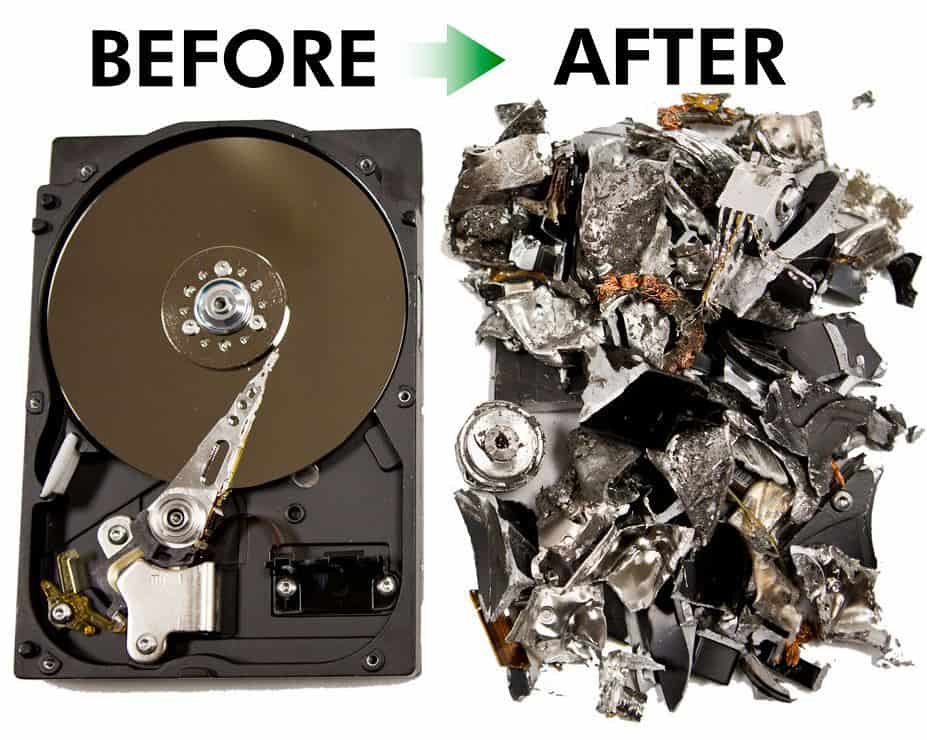The Effect of Effective Data Destruction on Cyber Security Risk Monitoring
The Effect of Effective Data Destruction on Cyber Security Risk Monitoring
Blog Article
The Important Nature of Information Damage in Upholding Computer System Protection Solutions and Protecting Against Unauthorized Accessibility
In an age where data breaches and identity burglary are progressively widespread, the importance of reliable data devastation can not be overstated. Organizations should identify that the failure to appropriately get rid of delicate details poses not only lawful and financial threats yet likewise a prospective disintegration of client trust. Various methods, from information cleaning to physical devastation, work as crucial safeguards against unauthorized accessibility. However, comprehending the ramifications of information destruction methods and compliance with laws raises necessary questions regarding the adequacy of existing strategies and their long-lasting stability when faced with advancing hazards.
Significance of Information Devastation
In a significantly digital world, the importance of information damage can not be overstated. As organizations amass large amounts of sensitive info, the prospective effects of falling short to properly handle and dispose of that data come to be significantly severe. Data breaches, identification burglary, and company espionage posture substantial dangers, highlighting the necessity of efficient information devastation methods.

In addition, as innovation advances, so as well do the approaches whereby destructive actors look for to manipulate sensitive details. Organizations must remain alert and aggressive in their data destruction methods to safeguard versus these evolving dangers. By prioritizing data damage, companies not only secure their assets however also foster trust fund amongst customers and stakeholders, showing a dedication to accountable information management and protection practices.
Techniques of Effective Data Devastation
To ensure the complete and permanent destruction of sensitive information, organizations can employ a selection of reliable techniques customized to their specific requirements. Among one of the most typical methods is data cleaning, which involves using specialized software application to overwrite existing data several times, making recuperation practically impossible. This is especially beneficial for hard disks and solid-state drives, where standard deletion methods are poor.
An additional effective technique is degaussing, which utilizes solid electromagnetic fields to interfere with the magnetic domain names on storage space media, rendering the data irretrievable. This method is especially matched for magnetic storage space devices, such as disk drive and hard disks.
Physical damage is likewise a feasible alternative, entailing the shredding, squashing, or incineration of storage devices. This method warranties that information can not be recuperated, making it suitable for companies managing very delicate information.

Conformity With Data Protection Laws
Organizations have to not only concentrate on effective information devastation techniques but likewise guarantee conformity with data protection regulations that govern how delicate info is dealt with and dealt with. Sticking to these guidelines is crucial for safeguarding personal data and maintaining customer depend on. Regulations such as the General Information Security Guideline (GDPR) in the European Union and the Medical Insurance Portability and Responsibility Act (HIPAA) in the United States enforce stringent standards on data monitoring, that include requirements for the safe and secure disposal of delicate info.
To achieve compliance, organizations must execute detailed information damage policies that line up with these legal frameworks. This includes recognizing information that needs damage, establishing protocols for protected methodsâEUR" such as shredding physical media or using software program that fulfills industry standards for data wipingâEUR" and keeping comprehensive records of damage tasks. Routine audits must be conducted to ensure adherence to these plans and to identify any kind of prospective locations for improvement.
Failure to adhere to data security guidelines can lead to substantial legal implications, including hefty penalties and damage to a company's reputation. Incorporating compliance right into data devastation practices is not just a legal commitment yet likewise a crucial element of a robust info safety and security strategy.
Repercussions of Poor Information Handling
Poor data handling can lead to serious consequences that extend past instant operational obstacles. Organizations may encounter significant financial losses as a result of information violations, which frequently lead to pricey remediation initiatives, legal charges, and regulative fines. These financial ramifications can hinder and stress resources growth, ultimately affecting a company's lower line.
Additionally, inadequate data handling can badly harm a company's online reputation. Partners, clients, and stakeholders might shed count news on an entity that fails to safeguard sensitive details, leading to decreased customer commitment and possible loss of organization chances. This erosion of trust can take years to rebuild, if it can be restored at all.
Additionally, organizations might deal with legal ramifications emerging from non-compliance with data defense policies. Such offenses may result in examinations and fines, worsening the monetary worry and further tainting the company's picture.
In the world of cybersecurity, inadequate information administration methods can my latest blog post produce susceptabilities that make systems more susceptible to unauthorized gain access to and cyberattacks. Eventually, these repercussions highlight the essential value of applying robust data managing treatments to guard delicate information and maintain business integrity.
Finest Practices for Secure Information Disposal


Firstly, information ought to be classified according to its level of sensitivity. Delicate details needs much more extensive disposal techniques, such as shredding physical files and using innovative software application for electronic information cleaning. Utilizing licensed data devastation solutions makes sure conformity with market laws and standards.
Secondly, companies ought to implement an information disposal plan that mandates routine audits. This policy must outline the procedures for information retention and destruction, ensuring that obsolete data is taken care of immediately and firmly. Educating staff members on these methods is vital to fostering a culture of safety and security awareness.
Finally, keeping in-depth records of disposed data enhances accountability and offers a clear audit trail. This documentation should consist of the kind of data destroyed, the approach made use of, and the day of disposal.
Verdict
To conclude, the vital of efficient data destruction appears in its duty in improving computer safety and security solutions and reducing unapproved accessibility dangers. Adopting durable techniques such as data wiping, degaussing, and physical damage, alongside compliance with policies like GDPR and HIPAA, is important for safeguarding delicate details. Disregarding appropriate information disposal methods can lead to extreme consequences, consisting of data breaches and lawful repercussions. Executing ideal practices in protected data weblink disposal inevitably strengthens organizational integrity and customer trust fund.
In a period where data breaches and identification theft are significantly common, the value of efficient data destruction can not be overstated. data destruction. Data breaches, identity burglary, and company espionage present considerable risks, emphasizing the need of efficient data destruction methods
Compliance with guidelines such as GDPR and HIPAA mandates that companies execute rigorous information protection actions, consisting of the protected destruction of information at the end of its lifecycle.
By prioritizing data devastation, business not only shield their properties however likewise foster trust fund among customers and stakeholders, showing a dedication to accountable information administration and protection practices.
Organizations need to not only concentrate on reliable information destruction methods but also ensure conformity with information protection regulations that control just how delicate details is dealt with and disposed of.
Report this page